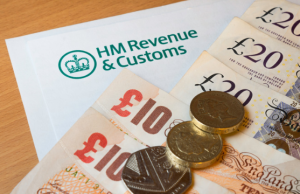Table of Contents
Tax audits are famously painful processes for businesses in the UK to go through, but essential to ensuring that companies are meeting their legal obligations regarding tax compliance. HMRC themselves do not use the word ‘audit’, instead preferring to describe their investigations as ‘compliance checks’.
Nonetheless, HMRC investigations occur not only to ensure that businesses are submitting their tax returns correctly but also to uncover instances of improper processes and reporting, amounting to fraudulent or otherwise illegal business practices like due diligence. What does an HMRC tax inspection look like? And how can businesses effectively minimize the risk of facing one?
Forms of Tax Inspection
HMRC tax inspections take three distinct forms: random check, full inquiry and aspect inquiry. The random check is as it sounds, being an inspection that takes place apropos of nothing; HMRC simply take the opportunity to review business tax processes and declarations at random.
A full inquiry is an audit triggered by HMRC flagging something suspicious or inaccurate within your tax records. This audit will take into account the entirety of your business records, with HMRC looking into your processes and figures in acute detail to uncover any potential impropriety or illegality.
An aspect inquiry is a focused investigation, tooled to look into a specific corner of your business’ records or practices. This would take place where a business has made a simple mistake in its reporting, or where a single blatant issue stands out from an otherwise sound tax return.
Why Does HMRC Investigate?
But what exactly triggers an HMRC inspection? HMRC are not altogether forward with the specifics of their inspection criteria, instead preferring to give generalised examples of potential causes for investigation. According to the official guidance page for HMRC tax compliance, checks are performed to “make sure you’re paying the right amount of tax at the right time” and to discourage tax invasion.
In practice, there are some specific things that might trigger an investigation from HMRC. Simple, explicable events can trigger a compliance check, such as the payment of less tax than the previous year despite growing your business profits– an eventuality that might occur as a result of higher tax-deductible expenses. Other specific things can trigger HMRC interest, such as director or business manager pay being inconsistent with industry averages or a significantly large single VAT claim.
Mitigating Risk
The first and most effective way to meet the potential for HMRC investigation is to voluntarily open your business up for an independent audit by a professional consultancy. This can allow you to receive expert, industry-specific advice on your accounting and company structure, in order to maintain compliance with tax law and transparently report your accounting figures.
Aside from this, general routes to mitigating risk essentially amount to ‘following the rules’. Timely tax returns reduce the likelihood of HMRC investigation. Figures and records should be actively kept up-to-date, to ensure no holes in your reporting.




